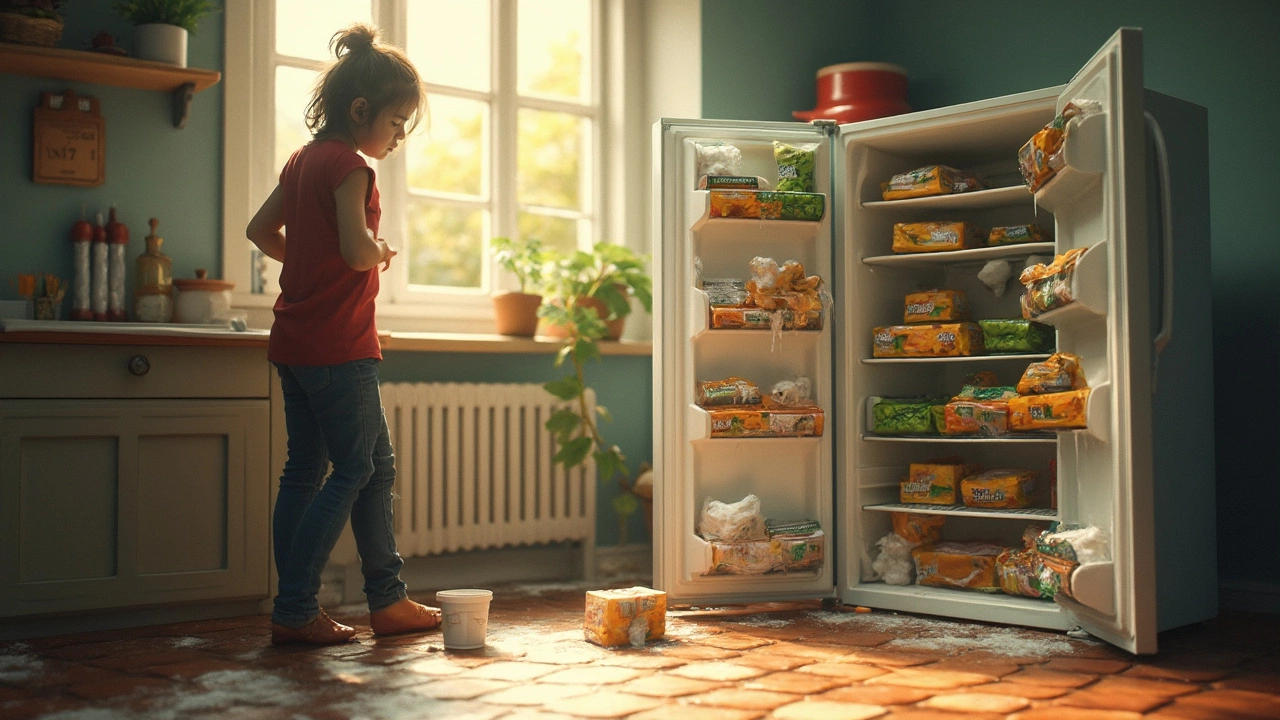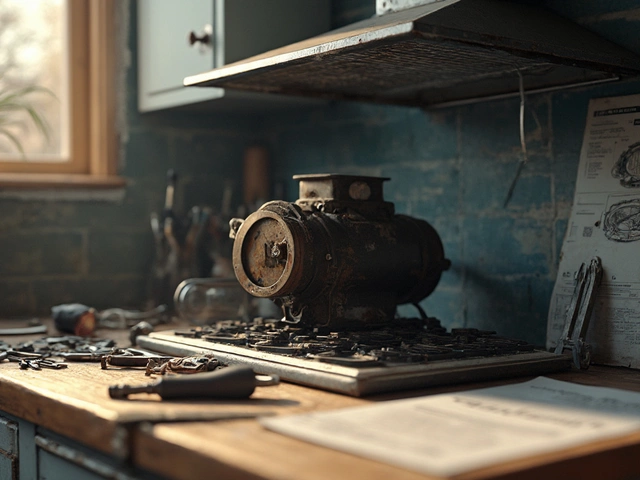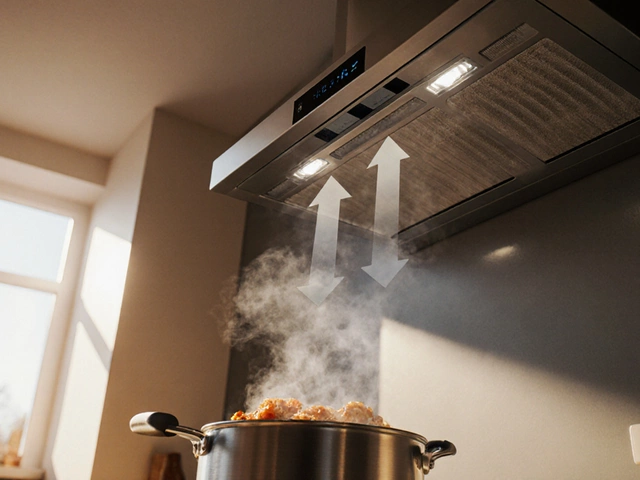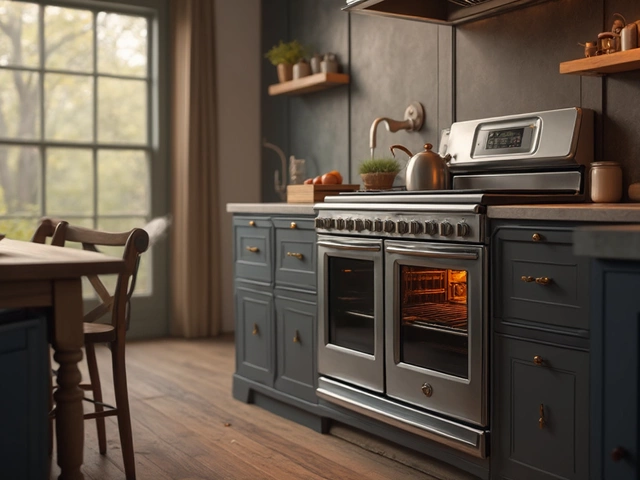If your freezer is acting up, you don’t have to panic. Most hiccups are caused by easy‑to‑spot things like a dirty coil, a stuck door seal, or a temperature setting that’s off. In this guide we’ll walk through the usual suspects, quick DIY steps, and the signs that it’s time to ring a professional.
First, check the thermostat. It’s easy to set it too warm by accident, especially after a power cut. Turn the dial to the coldest setting for a few hours and see if the temperature drops. If it does, you’ve solved the problem without opening the back of the unit.
Next, feel the door gasket. A worn or cracked seal lets warm air sneak in, making the compressor work overtime. Close the door on a piece of paper; if you can pull it out easily, the seal isn’t tight enough. Replacing a gasket is a cheap DIY job – just unscrew the old one, line up the new rubber, and snap it into place.
Dirty condenser coils are another common culprit. Over time dust and pet hair coat the coils at the back or underneath the freezer, blocking airflow. Pull the unit away from the wall, unplug it, and use a vacuum brush to clear the coils. A clean coil improves cooling efficiency dramatically.Finally, listen for the compressor. A humming, clicking sound usually means it’s trying to start but can’t. This could be a failed start relay or a refrigerant leak – both need a qualified technician. Running the freezer with a failing compressor wastes electricity and can damage food.
Ice buildup is often caused by a door that stays open a little too long. Check if the hinges are tight and the latch clicks securely. If the door swings back when you let go, adjust the hinges or replace the latch.
Defrost the freezer regularly. Even a frost‑free model benefits from a manual defrost every few months to clear hidden ice on the evaporator. Unplug the unit, remove all food, and let the ice melt. Use towels to catch water, then wipe dry before restarting.
Leaking water usually points to a clogged drain tube. Inside the freezer, a small hole at the back allows water to flow to a pan that later evaporates. If that hole is blocked, water pools and can seep out. Use a bright‑colored pipe cleaner or a thin brush to clear the drain, then pour a cup of hot water to flush it.
Keep the freezer level. A tilted unit causes the door to sit unevenly, leading to both ice and leaks. Use a spirit level on the top surface and adjust the front or rear feet until it’s even.
When you’ve tried these steps and the freezer still won’t stay cold, it’s time to call in Bognor Regis Appliance Repair Experts. Their technicians can diagnose compressor issues, replace faulty thermostats, and handle refrigerant problems safely. Quick professional help saves food and prevents a small fault from turning into a costly breakdown.
By checking the thermostat, sealing the door, cleaning the coils, and maintaining the drain, you’ll avoid most freezer mishaps. Keep these simple checks in your routine, and you’ll enjoy a reliably frosty space without the hassle of emergency repairs.

Ever opened your freezer to find squishy ice cream or thawed food when it should be rock solid? This article digs into the real reasons your freezer refuses to stay frozen, from simple mistakes to sneaky mechanical fails. Learn how to spot common culprits, fix minor issues yourself, and know when things are actually serious. Packed with practical tips and straightforward advice, you'll get the cold facts and solutions you need. No jargon, just help you can actually use.

Thinking about swapping out the motor in your extractor fan? This article breaks down what's really involved, the red flags that mean the motor's cooked, and how to decide if you should tackle it yourself or call in a pro. It covers how to find the right replacement part, tips to avoid shocking mistakes, and why some fans just aren’t worth fixing. Whether your bathroom fan wheezes or your kitchen extractor hums like a jet, here’s how to handle a motor on its last legs.

Exploring the value of repairing a freezer involves assessing various factors, such as the cost of repairs, the appliance's age, and the efficiency improvements of newer models. Understanding common freezer problems can help homeowners decide whether a repair is worthwhile. The decision should account for both economic and environmental perspectives, guiding when to repair or replace.

Is your 10 year old dryer gasping for air, and you’re wondering if it’s time to fix or toss it? This article breaks down how long dryers usually last, what typical repair costs look like, and when it just makes more sense to get a new one. You’ll find smart tips to figure out if fixing an older dryer is throwing good money after bad or saving yourself from an expensive upgrade. Get real-life advice that skips the fluff and gets to the point.

Find out if leaving your extractor fan on is safe, how much energy it uses, and the best practices to protect your home while keeping the kitchen fresh.

Choosing an oven that stands the test of time goes beyond looks and price. This article delves into which oven brands are celebrated for their durability. We'll explore how build quality, materials, and innovative technologies play a role in longevity. Plus, you’ll get insider tips on maintaining your oven for years to come. Discover how to make a smart choice today that benefits you tomorrow.